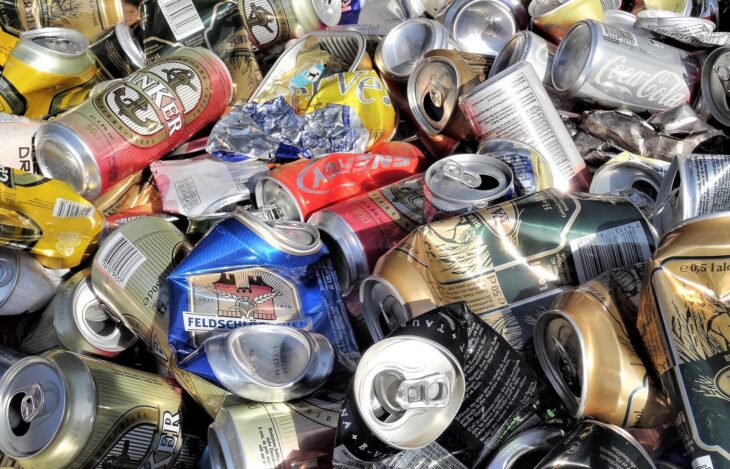The International Aluminium Institute (IAI) joined the Aluminum Association, European Aluminium, the Aluminium Association of Canada, and the Australian Aluminium Council, along with numerous aluminum producers, recyclers, rolling mills, can makers, and other industry leaders, in calling for urgent actions to be taken to achieve full circularity of aluminum beverage containers to decarbonize the aluminum sector.
Currently more than 70% of aluminum beverage cans are recycled into new products, but this figure falls short of making the complete contribution necessary for achieving the International Energy Agency’s (IEA) Net Zero 2050 goal. The number of beverage cans is set to increase from 420 billion in 2020 to 630 billion by 2030 and data has revealed that recycling all cans globally in 2030 would save 60 million tonnes of greenhouse gas emissions per year.
“Together we are calling for greater commitment from national governments and the aluminum beverage can value chain industry to accelerate beverage can recycling rates, with at least an 80% target by 2030 and near 100% by 2050,” said Marlen Bertram, IAI’s director of Scenarios and Forecast.
To enable this, the aluminum industry is calling for a number of actions to be adopted by policy makers. This includes establishing national and/or state-level recycling targets for aluminum beverage cans, formulating policies to help achieve these targets and enhance the quality of collected used beverage cans, and collecting and publishing data on beverage can recovery rates to monitor progress.
In addition, there are four actions for the aluminum industry to increase recycling rates towards the 100% goal, including scale up of existing recycling capacity to recycle all cans put on the market, tracking the global recycling rate, supporting smart policies to improve aluminum beverage can collection and recycling, and prioritizing canto-can recycling by maximizing the recycling content through optimized alloy design and scrap purification. Decarbonization models for the industry, as presented by IAI, IEA, and Mission Possible Partnership, indicate that the aluminum sector has a much higher chance to achieve the required reduction in emissions if it maximizes collection and recycling at the end of life.
“The aluminium beverage can is one of the most recycled beverage containers globally, and our industry has committed to raising that recycling rate to new heights,” said Kristen King, director of Sustainability, Ardagh Metal Packaging. “To fulfil this commitment, we are calling on national and/or state-level governments to establish targets to increase recycling rates. Collectively, we can successfully recycle more cans, leading to more energy saved, fewer greenhouse gas emissions and increased revenue to help strengthen the circular economy.”
Participants
The following companies and organizations have endorsed the actions:
- Emirates Global Aluminium (EGA)
- Australian Aluminium Council
- U.S. Aluminum Association
- Ardagh Metal Packaging
- Aluminium Association of Canada
- Associação Brasileira do Alumínio (ABAL)
- The Brazilian Aluminium Beverage Can Association (Abralatas)
- Can Manufacturers Institute
- European Aluminium
- Ball Corporation
- Crown Holdings
- Speira
- Canpack Group
- Constellium
- Novelis
- UACJ Corporation
- Metal Packaging Europe
- Elval
- Japan Aluminium Association
- UNESDA
- Beverage Industry Environmental Roundtable (BIER)
- Aluminium Stewardship Initiative (ASI)
- Every Can Counts
- Food Industry Asia
- Mission Possible Partnership
- RECAPP by Veolia
- Rocky Mountain Institute
- Thailand Institute of Packaging and Recycling Management for Sustainable Environment (TIPMSE)
- The Brewers of Europe

